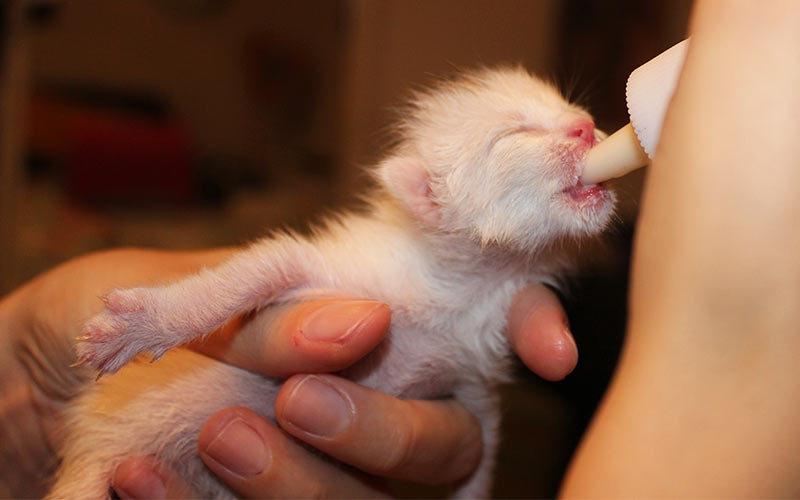Cats are one of the most sensitive creatures when it comes to their appetite. You may find them getting stuck in an embarrassingly dangerous situation and even surviving. However, when it comes to their stomach. The scenario is quite the opposite. Having said this, you being a pet parent, are the one solely responsible for their well-being.
On the other hand, they will, without hesitation, put everything that touches their paw into their mouths. Similar is the case when it comes to cats and milk. If there is anything we learned from ‘Tom and Jerry’, cats love milk. Sometimes they might even give it preference over going mouse hunting!
However, the question of debate is whether milk is suitable for a cat? And if it is beneficial, is all milk health-wise enriching for them?
Can cats drink milk?
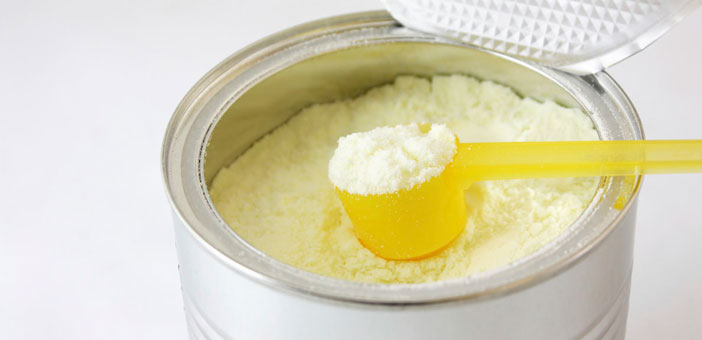
It is no doubt that they can. But it is not something that is advised by a professional vet more often than not. Milk can be the root cause of several digestive issues over a while. Dairy products, even though they are quite nutritionally healthy, are not preferred for cats. Popular belief, on the other hand, disagrees. A misconception has been given birth to which is being carried on while the truth is hugely contradicting.
You may be alarmed to know that milk in adult grown cats can cause severe diarrhea and vomiting. Unlike human beings, a cat takes quite a while to recover from the dehydration caused by diarrhea. In extreme cases, if the cat is unable to recover, it may lead to fatality.
How do I know if my cat can drink milk?
The only way of ensuring (to a certain extent) the white liquid’s safety for your cat is by allowing it to drink very little. If you have not served milk to your cat before, do not go overboard. Pour in less than half a cup of milk and feed it to your cat. After doing so, you will need to be on the lookout for any unusual symptoms such as;
- Loss of appetite
- Feeling lethargic
- Avoiding to sit down on its stomach
- Vomiting
- Irritability
- Elevated heart rate
- Excessive panting
In case you notice any of these symptoms in your cat, call the vet immediately. There is no better care you can provide your feline friend other than that advised by an expert.
Is milk suitable for cats?
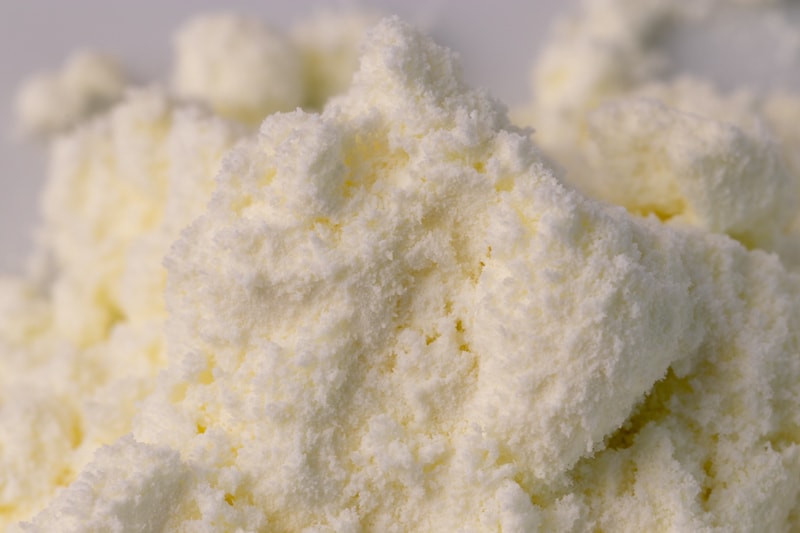
Let us suppose that your cat can drink milk without developing any health complications. Would it bring the cat any benefits? To put it simply, no. A cat’s body mechanism is far different than that of a human being. It does not tend to use up all the supplements that a meal contains. Their bodies require particular nutrients that milk does not hold. The best source of vitamins and beneficial dietary food is cat food. It gives a cat all that it needs to be healthy and active.
Milk being incorporated into your cat’s diet will do the exact opposite of what you intend. Several research types have been conducted over the years, proving the negatives of drinking milk in a cat. Some of these long term consequences can be;
- Chronic digestive issues
- Adverse effect on their lifespan
- Reproduction (rarely)
- The strength and structure of their bones.
However, if you are insistent on letting your cat relish the taste of milk, feed it to the kitty once a blue moon. Serving it to them daily is highly discouraged under any circumstance.
Do cats have lactose tolerance?
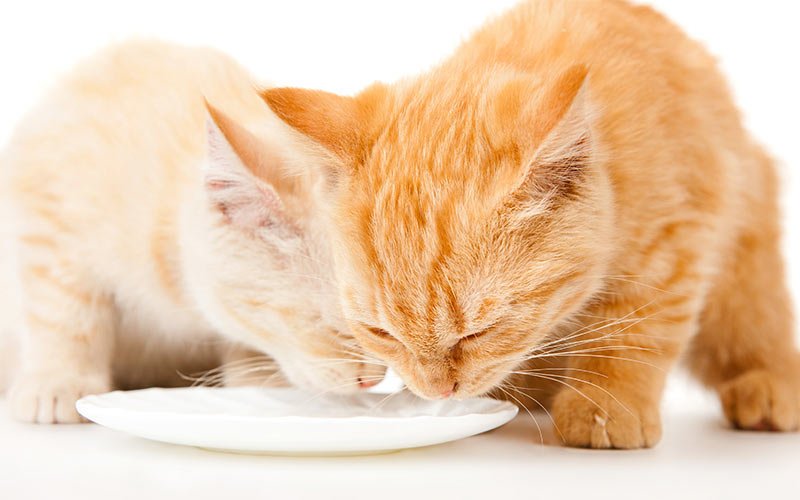
Lactose is sugar in the form of glucose. It makes up a significant portion of any milk. However, cats are lactose intolerant. They do not have the capability of digesting the lactose component that is included in milk. A specific enzyme is required to break down lactose present in abundance. In the absence of lactase (the enzyme), breakdown and digestion are not possible. This enzyme, not too astonishingly, is absent in full-grown cats.
You may be confused about how mother feed is crucial to kittens in their initial growing months. Do not worry; we are going to make it simpler for you to understand. Cats are born with the natural ability to produce the lactose-breaking enzyme inside their stomach. Nonetheless, they can only break down and process the digestion of mother-fed milk. With time as they grow up, they eventually come to a halt in terms of lactase production.
Can cats drink powdered milk?
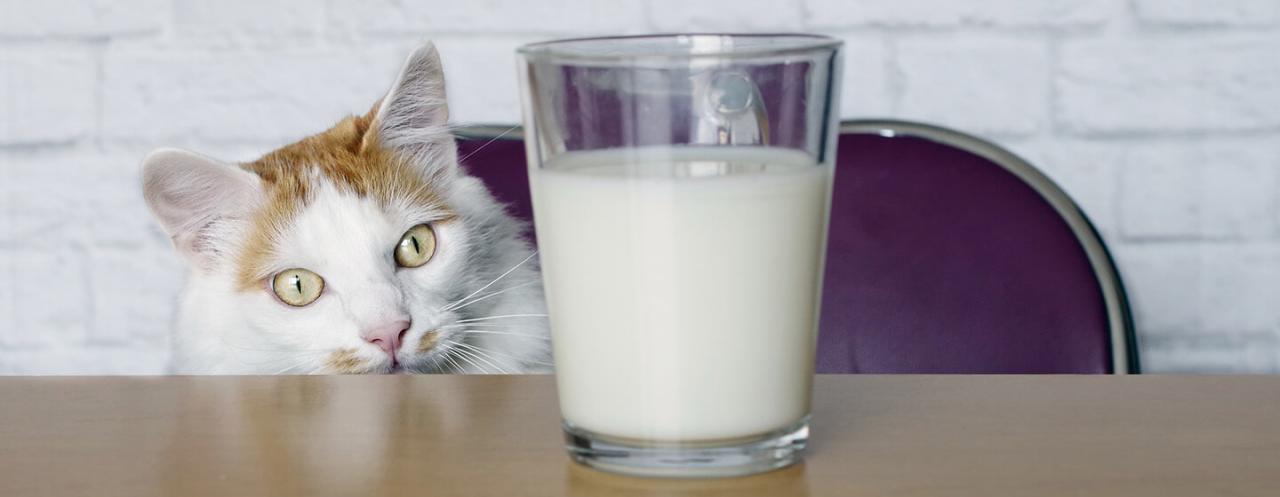
Cats that are fully grown mammals cannot drink milk of any sort. They might not show any signs of concern if served milk on rare occasions. This, in no manner, is the indication that it should be made a part of their routine food. Although you need not dwell on it, your furry feline friend has no business drinking milk anyway.
At the same time, kittens can drink powdered milk under specific circumstances. If you have taken it upon yourself to take care of an orphaned kitten, the best alternative to mother’s feed is powdered milk. Bearing in mind that kittens have little lactose in them, regular cow or goat milk is a no-no for them.
Kitten milk replacer is powdered milk that can feed the kitten. It is enriched with all the vitamins and nutrients a growing kitty needs. This powdered milk is manufactured in a way to play the role of a replica of mother-feed. It is prepared and modified according to the stomach capacity, therefore effortless to digest and high in nutrient content.
Can a grown cat be fed powdered kitten milk?
Having researched this topic of debate thoroughly, we would suggest otherwise. A kitten formula only meets the basic needs of a kitten who is a few months old. Older cats, in comparison, have more physical requirements of proteins. It would be best if you instead fed it with healthy cat food and occasional treats. Everyone loves a happy cat! This will keep your kitty fit, upbeat, and as healthy as ever.
